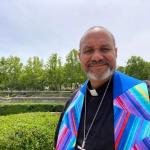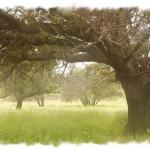The prophet Micah issued a “volcanic warning” about the consequences of injustice in ancient Israel. What can we learn from his words for our own time and for God’s Creation?
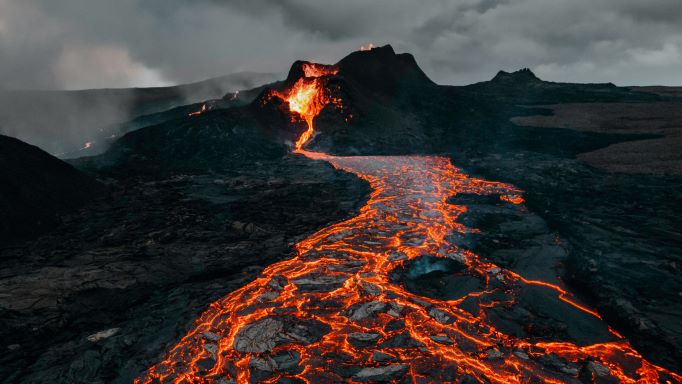
(I preached this sermon at the invitation of Hunter Presbyterian Church in Lexington, Ky., on June 12, 2022. You can watch the video of the sermon here: https://youtu.be/xQ0HTnKhYq0. The video begins with the reading of the scriptures. The sermon begins at minute mark 3:20.)
“The mountains will melt under him, and the valleys will burst open, like wax near the fire, like waters poured down a steep place.” (Micah 1:4)
These are Micah’s words of warning to his people about the volcanic landslide of consequences they are facing for allowing injustice in their society.
Micah was a Hebrew prophet who wrote these words in about 750 BCE, nearly 3000 years ago. He lived in the land of Judah, and he watched the structures of inequality and idolatry crush and extract from those who were poor. In his writings, he called out the rich and powerful who stripped away the rights of the common people. And he did this specifically from a theological premise. He framed these consequences as God’s judgement against their brutality, their economic violence, and their smug and smarmy impunity.
What’s interesting is that Micah isn’t just calling on people to hear this judgement oracle. He is calling on the “earth and all that fills it” to listen (1:2). He wants all of Creation to bear witness to God’s judgment against the leaders and political systems that have broken the sacred covenant.
This is not the only time a Hebrew prophet has called upon the Earth to testify against the evil deeds of humanity.
Isaiah began his prophetic message the same way: “Hear, O heavens, and listen, O earth; for the Lord has spoken: I reared children and brought them up, but they have rebelled against me,” (Isaiah 1:2).
And Jeremiah said, “Hear, O earth; I am going to bring disaster on this people, the fruit of their schemes, because they have not given heed to my words; and as for my teaching, they have rejected it,” (Jeremiah 6:19).
Why would these prophets call on Creation to give testimony against the evil deeds of humans?
Is this some kind of courtroom drama with plaintiffs and defendants, lawyers and witnesses, a judge and jury?
In fact, that’s exactly how Micah imagines this scene. The book of Micah is in the genre of a “covenant lawsuit” in which God sues Israel for a breach of contract.
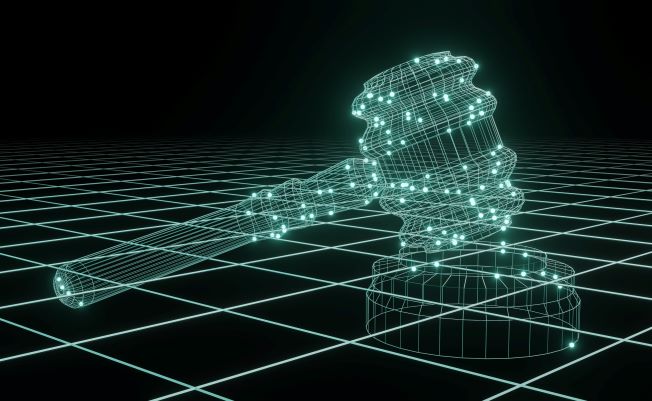
What contract did they violate?
It’s the covenant that came through Moses, way back in the book of Exodus. Micah is saying that his people have created a political system that violates the Ten Commandments and all of the other laws that God gave them.
Those laws were meant to ensure that everyone could live in peace. And that everyone could have enough – enough to eat, safe places to live, access to the resources of the land and waters. The law also commanded that they respect the need for balance between work and rest, labor and Sabbath. It was about respecting not just people, but the land itself, including the animals that provided them food, transportation, and muscle power for their agriculture.
There were times when the people respected God’s covenant and they lived in relative peace with each other and with God’s Creation.
But over time, the ones who had accumulated more land, wealth, and power refused to share.
They passed laws and crafted their economic system in such a way that only a small, elite group controlled the land and the people. In Chapter 2, Micah says that they devise wickedness and evil deeds and are able to carry them out because it is “in their power” (2:1). They take people’s fields, houses, and money. They suck up all the resources from the land and people for themselves without giving back to the common good.
As Micah observed, when one group gets stronger and wealthier at the expense of everyone else, when power and money is concentrated at the top, it weakens the entire community.
The people are not united anymore because the leaders pit different groups against each other. This divisiveness means that they don’t trust each other. And this makes them vulnerable to outside attacks.
That’s exactly what happened to Israel. The Assyrian Empire attacked Samaria, the capital, and destroyed it. Then they went after Judah. It was like dominos falling. All because the leaders worshiped money instead of God. They wanted all the freedom to do whatever they wanted. But they didn’t take any responsibility for the consequences of their selfishness. They wanted to tell everyone else what to do. But they didn’t want any moral or ethical restrictions to curb their lust for power.
That’s why Micah has to use such cataclysmic images in his prophetic oracle.
He’s trying to tell them that the volcano of injustice is about to erupt and blow apart the entire foundation of their society. It’s not just an earthquake. It’s a fiery explosion coming from deep within Earth’s core in response to humanity’s injustice. It will flow down like hot, molten lava, burning up everything in its path.
Micah couldn’t know it three thousand years ago, but his words are eerily appropriate for our own time.
The ecological consequences of humanity’s extraction, oppression, and pollution of Earth have devastated generations of people, animals, and plants. Now we’re at a breaking point. We, too, are facing a landslide of judgement for structures of inequality and idolatry. These structures crush and extract from those who have had their land and labor stolen from them.
We, too, have watched the rich and powerful strip away the rights of the common people. This includes women; those who are LGBTQIA; Black, Indigenous, and people of color; as well as all other historically marginalized groups. The brutality, economic violence, and divisiveness that the powerbrokers sow among us is weakening democracies in all parts of the world. And the smug and smarmy impunity with which they get away with their abuse makes the blood boil like molten lava rising from Earth’s core.
Micah’s words are designed to catalyze repentance.
He’s trying to break through us complacency and privilege. To move us away from ignorance and lethargy so we wake up and realize: things must change. And we must be part of that change.
I know these are difficult words to hear. It’s hard to listen to, because Micah’s words are about dismantling systems and structures.
And that’s probably not why you came to church today.
In fact, most folks in churches get uncomfortable when we read these parts of the Bible about God’s judgement. Or, at least those of us who enjoy the benefits from these systems tend to get uncomfortable when we hear these words.
Many people complain when a preacher talks about social issues like this.
Or they get mad when the preacher tries to encourage them to get out of their comfort zones and join with their neighbors who are oppressed so that we can work to restructure society the way God intended.
If you’re feeling this way, you’re not alone. In fact, the people in Micah’s congregation said the same kinds of things! In Chapter 2, they yelled back at him, “Do not preach! One should not preach of such things; disgrace will not overtake us!” (2:6).
But Micah doesn’t back down.
Like a prosecutor in God’s courtroom, he keeps laying out the evidence. Just like we saw at the first of the hearings about the violent insurrection on January 6th. As I watched the videos of those bloodthirsty mobs and listened to the testimony Officer Caroline Edwards, I was thinking about Micah’s words.
“You rise up against my people as an enemy; you strip the robe from the peaceful, from those who pass by trustingly, with no thought of war” (2:8).
Then in verse 9, Micah’s words drive against those who feed on fear, especially in the form of guns. When I think about those would rather protect guns than the lives of children and their families, Micah’s words cut to heart.
“The women of my people you drive out from their pleasant houses; from their young children you take away my glory forever” (2:9).
“From their young children you take away my glory forever.”
The children. From the children of Uvalde to the children of Ukraine. The children of Indigenous peoples; the children of black and brown mothers and fathers. From the children of the Holocaust to the children of Africa. The list goes on and on. All of them stripped of God’s glory when their lives are ended in violence, murder, genocide, and war. This is not God’s will.
I know, this is all hard to hear.
It was traumatic to watch that trial. It is soul searing to see the pictures of all those children and their teachers on the covers of magazines every time there is another school massacre. It’s overwhelming to think of the cascade of environmental catastrophes that are happening not just in the future, but right now. From the pandemic, to the wildfires, to the hurricanes, to the relentless extinction of species.
It all feels like too much, doesn’t it?
But here’s the thing. Micah’s words are, in fact, good news.
How so? Because his prophetic oracle tells us that the ones who have been made invisible and vulnerable are being seen. God sees them. Their suffering is noticed by God. God is not ignoring the callous elites. God is paying attention.
And God’s justice involves tearing down the places of power, symbolized by the capital city of Samaria.
Therefore I will make Samaria a heap in the open country,
a place for planting vineyards.
I will pour down her stones into the valley,
and uncover her foundations. (1:6)
God is saying that the harmful structures that have been imposed on the land and the people will be laid to ruin.
That’s really bad news for those of us who benefit from those structures. But it’s good news for the Earth and for those who live close to the Earth and seek to tend it with care and responsibility.
When the rubble is cleared away, the good soil that had been covered over can breathe again. It can sustain life again. It will be a place for planting vineyards and fruit trees and gardens and playgrounds without the fear of bullets.
But in the meantime, we are going through these upheavals and volcanic eruptions within our social, economic, political, educational, and health systems. These upheavals are literally rocking our world. That’s because this is a time of rebalancing the terrain. John the Baptist, echoing Isaiah, talked about it, too, when he said “every valley shall be lifted up and every mountain shall be laid low” (Luke 3:5, Isaiah 40:4).
So we are going to have to ask ourselves some difficult questions.
How will we live through this change together? What kind of people will we be? What kind of church will we be?
These are questions you’ll need to ask yourselves as a congregation. These questions can help guide you as you build your ministry in the world, in this community, together.
A few weeks ago, I talked with a fellow colleague about Micah’s prophetic words. Her name is Dr. Carolyn Sharp, and she teaches preaching at Yale Divinity School. She’s working on a book about Micah.
Dr. Sharp told me that there is tremendous power in naming transgressions, sins, loss, and grief the way Micah does.
Naming them in our preaching, in our worship services, in our teaching, and in our advocacy and activism can lead to changing the way we see things. When we name the sins, we can see the vulnerable people and other species who remain. They are the sacred remnant, precious and loved by God.
In Chapter 2, God makes a promise.
“I will surely gather all of you, O Jacob, I will gather the survivors of Israel; I will set them together like sheep in a fold, like a flock in its pasture; it will resound with people” (2:12).
This is a vision of a healthy ecosystem supporting a healthy community. It’s a community that is governed by – and adheres to – God’s covenant. This covenant assures relationships of reciprocity and peace between people and the land. It’s the kind of community that was the basis of Indigenous peoples before European colonists drove them from the land. And it’s the kind of community that many of us are longing for, even if we don’t have the words for it yet.
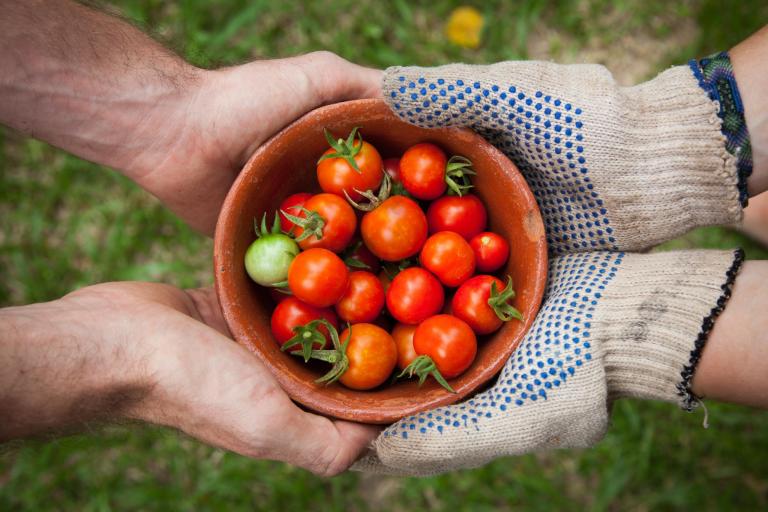
Maybe you feel those stirrings within your soul for a different way of living. Perhaps you yearn to gather — and gather with — the sacred remnant.
If so, remember that you have what you need right in your congregation and community. There are other people who care, who have gifts and skills to help your church become a place of both refuge and “gate-busting.” Because, as Micah tells us, God goes before us.
The one who breaks out will go up before them;
they will break through and pass the gate,
going out by it.
Their king will pass on before them,
the Lord at their head. (Micah 2:13)
God breaks through the structures of oppression, and makes a way for us.
My prayer for us is that we will have the courage to pay attention and respond to God’s call. To help gather up the sacred remnant of people and species and forests and coral reefs and icebergs. And to follow our God who makes a way for us through the rubble so that we can rebuild on the foundations of justice, compassion, equity, fairness, and love. Amen.
Read also:
The Politics of Faith – The Bible, Government, and Public Policy: Book Review
What to Do When Parishioners Leave – Because of Politics
Being Theological in a Political World
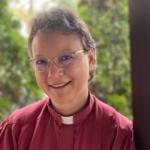
The Rev. Dr. Leah D. Schade is the Associate Professor of Preaching and Worship at Lexington Theological Seminary in Kentucky and ordained in the ELCA. Dr. Schade does not speak for LTS or the ELCA; her opinions are her own. She is the author of Preaching in the Purple Zone: Ministry in the Red-Blue Divide (Rowman & Littlefield, 2019) and Creation-Crisis Preaching: Ecology, Theology, and the Pulpit (Chalice Press, 2015). She is the co-editor of Rooted and Rising: Voices of Courage in a Time of Climate Crisis (Rowman & Littlefield, 2019). Her latest book, co-written with Jerry Sumney is Apocalypse When?: A Guide to Interpreting and Preaching Apocalyptic Texts (Wipf & Stock, 2020).
Twitter: @LeahSchade
Facebook: https://www.facebook.com/LeahDSchade/


